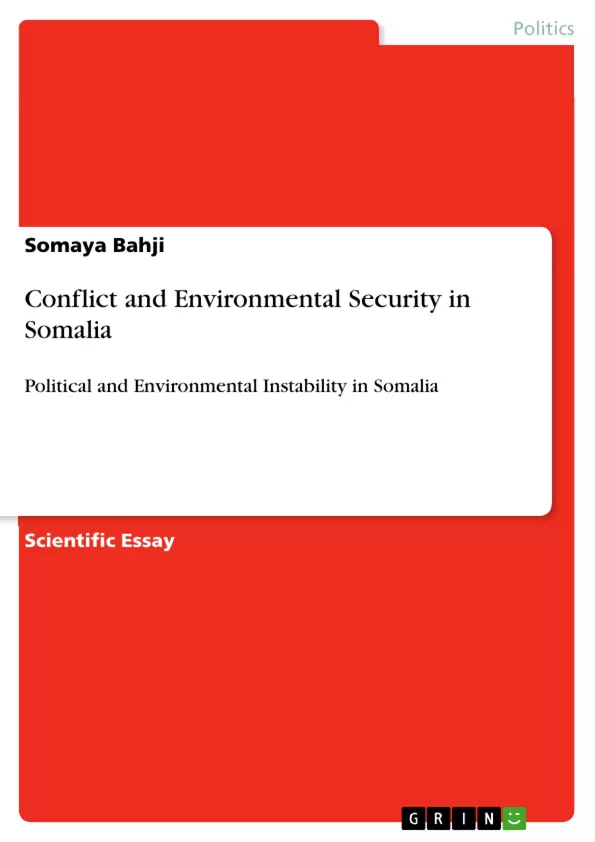The contemporary era of international relations is characterised by increased political and economic interconnectedness and interdependence between states and non-state actors. Globalising and managing trade and commerce processes through institutions such as the International Monetary Fund and the World Bank promoted global industry, big businesses, and multinational corporations that depend heavily and more than ever before on the exploitation of natural resources such as oil, gas, and minerals and compete over securing their fair share of power-generating resources whether they are hydel, thermal, or nuclear.
In the developed world, overuse of natural resources coupled with the disposal of massive amounts of industrial wastes in dump sites can have long-lasting detrimental repercussions on human health as well as the natural environment. Whereas the industrialised countries of the Global North are attempting to find new ways of recycling industrial wastes and developing alternative sources of energy through the use of advanced technology, developing and underdeveloped countries in Africa such as Somalia, Mali, and Ethiopia struggle to maintain the few and scarce natural resource available to them for current as well as for the future generations.
Inter or intra-state conflicts in such countries worsen the severity of environmental issues, chiefly droughts. Often, the scarcity of natural resources in these countries becomes an environmental issue with social, economic, and political dimensions, hence, threatening the stability of the state and acting as “Pandora’s Box” by causing crises of different kinds to emerge and impact populations locally and regionally.
Somalia as an underdeveloped African country represents a quintessential example of how a correlative relationship between political instability and environmental issues can cause the entanglement of a state into a vortex of interrelated crises leading to more instability, both political and environmental.
Inhaltsverzeichnis (Table of Contents)
- Part One:
- A Cause for War: The Environment in 21st Century
- Somalia's Environmental Issues and Policies: General Overview
- From Extreme Weather to Civil War: The Case of Somalia
- An Uncertain Future for Somalia
- Part Two:
- Somalia's Environmental Issues: From Civil War to Extreme Weather
- From Civil War to Extreme Weather: Moving Forward
- An Environmental Strategy for Political Stability: Cloud Seeding
Zielsetzung und Themenschwerpunkte (Objectives and Key Themes)
This paper explores the complex relationship between political instability and environmental issues in Somalia, using the country as a case study to demonstrate how the two factors can intertwine and exacerbate one another. It examines the role of environmental scarcity, resource management, and globalisation in fueling conflict and hindering development in Somalia. The paper also explores potential strategies for achieving political stability through environmental interventions.
- The impact of environmental scarcity on political stability in Somalia
- The role of resource management and conflict
- The influence of globalisation on environmental issues in Somalia
- The potential for environmental solutions to promote political stability
- The challenges of addressing environmental issues in a conflict-ridden context
Zusammenfassung der Kapitel (Chapter Summaries)
Part One of the paper provides a general overview of the environmental issues faced by Somalia and explores the historical context of conflict in the country. It examines the role of environmental scarcity in fueling conflict and hindering development, drawing on the "Resource Curse" thesis. The chapter also discusses the impact of globalisation on Somalia's environmental issues and the challenges of resource management in a fragile state.
Part Two delves deeper into the specific environmental issues that Somalia faces, particularly those related to climate change and drought. It explores the potential for using cloud seeding as a means of promoting political stability by addressing the environmental challenges. The chapter also discusses the need for improved governance and resource management in Somalia to ensure sustainable development and long-term stability.
Schlüsselwörter (Keywords)
The paper focuses on the key themes of environmental degradation, political instability, resource scarcity, conflict, and development in Somalia. It also explores the concepts of the "Resource Curse," globalisation, and the role of governance in addressing environmental challenges. Other important terms include climate change, drought, cloud seeding, and sustainable development.
Frequently Asked Questions
How are environmental issues and political instability linked in Somalia?
The paper argues that environmental scarcity, especially regarding water and resources, creates economic and social dimensions that exacerbate existing political conflicts and instability.
What is the "Resource Curse" mentioned in the text?
The "Resource Curse" thesis suggests that countries with an abundance of natural resources often experience less economic growth and more conflict than countries with fewer resources.
What impact does globalization have on Somalia's environment?
Globalization promotes industrial competition over natural resources like oil and minerals, which can lead to overexploitation and the disposal of industrial waste in developing countries.
Can environmental strategies help achieve political stability?
The paper explores potential interventions, such as cloud seeding to address droughts, as a means to mitigate environmental triggers for war and promote state stability.
What are the main environmental challenges Somalia faces today?
Somalia struggles primarily with extreme weather conditions, chronic droughts, and the scarcity of natural resources required for its population.
How does conflict affect resource management?
Ongoing inter or intra-state conflicts hinder the government's ability to maintain and manage scarce resources, leading to a vortex of interrelated environmental and political crises.
- Citation du texte
- Somaya Bahji (Auteur), 2016, Conflict and Environmental Security in Somalia, Munich, GRIN Verlag, https://www.grin.com/document/343656



